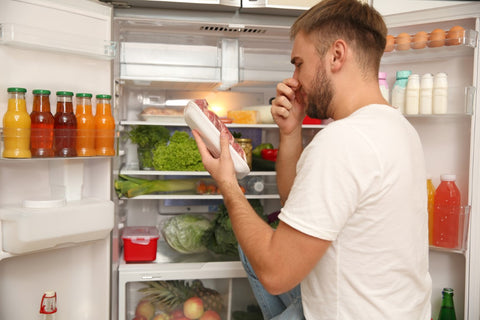Undoubtedly, we all want to ensure that the food we eat is fresh and wholesome. But the quality and safety of our food can be significantly impacted by how we store it. I have to say the usage of ice is one of the most vital roles of proper food storage. Today, we'll explore the key to safe and delicious meals.
Why Proper Food Storage is Important
Proper food storage is crucial to prevent foodborne illnesses, which can be severe or even life-threatening. Bacteria, viruses, and parasites can grow rapidly in food that is not stored correctly. Moreover, food stored improperly can also lose its nutritional value and taste.

The Role of Ice in Food Storage
Ice plays a critical role in food storage by helping to keep food at safe temperatures. In particular, ice is essential for keeping perishable foods, such as meat, poultry, fish, and dairy, fresh for extended periods. By using ice, we can slow down the growth of bacteria and other microorganisms that can cause spoilage and foodborne illness.
Besides, proper food storage can also help to reduce food waste. When we store our food properly, it stays fresh for a longer time, reducing the need to throw away expired or spoiled food. This saves money and helps conserve natural resources and reduces the environmental impact of food waste. Proper food storage is also essential for maintaining the quality and flavor of our food. By storing our food correctly, we can preserve its nutritional value and taste, ensuring we can enjoy it to the fullest extent. Overall, proper food storage is crucial for our health, the environment, and our enjoyment of food.
Best Practices for Using Ice in Food Storage
Use clean and fresh ice: Always use clean and fresh ice when storing food. Ice that has been sitting in the freezer for too long can absorb odors and flavors from other foods, which can affect the taste and quality of the food you're storing.
Store food in airtight containers: It's important to store food in airtight containers to prevent contamination and maintain freshness. When using ice, ensure the container is tightly sealed to prevent water from seeping into the food.
Use the right amount of ice: Using the right amount of ice is essential to maintain the right temperature and prevent the food from getting too cold or freezing. In general, you should use enough ice to cover the food and maintain a consistent temperature.
Keep the ice clean: Regularly clean your ice maker or ice bin to prevent mold and bacteria buildup. If the ice is dirty or contaminated, it can affect the quality and safety of the food you're storing.
Monitor the temperature: Keep an eye on the temperature of the food you're storing to ensure it stays within safe limits. Use a thermometer to check the temperature regularly, and adjust the amount of ice as needed to maintain the right temperature.

Conclusion
Proper food storage is critical to ensure our food is safe, fresh, and nutritious. Using ice can keep perishable foods at safe temperatures and prevent spoilage and foodborne illness. Follow the best practices for using ice in food storage to keep your food fresh and safe.
FAQs
- Can I reuse ice that has melted?
Reusing ice that has melted is generally not recommended as it may contain contaminants and affect the food quality that you're storing.
- How often should I clean my ice maker or ice bin?
It's recommended to clean your ice maker or ice bin at least once every six months to prevent the buildup of mold and bacteria.
- Can I use dry ice for food storage?
Dry ice can be used for food storage but requires special handling as it can be dangerous. It's best to consult with a professional before using dry ice for food storage.
- How long can I store food in the freezer?
The length of time you can store food in the freezer depends on the type of food and the freezer's temperature. Frozen food can generally be stored for several months to a year.
- What temperature should I keep my refrigerator and freezer at?
The recommended temperature for the refrigerator is between 35° F and 38° F.

Leave a comment
All comments are moderated before being published.
This site is protected by hCaptcha and the hCaptcha Privacy Policy and Terms of Service apply.